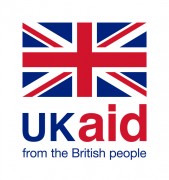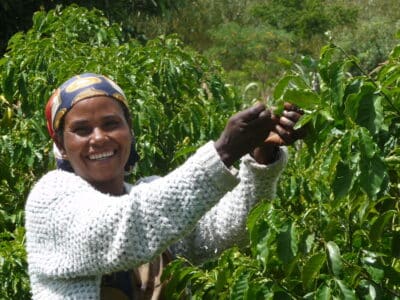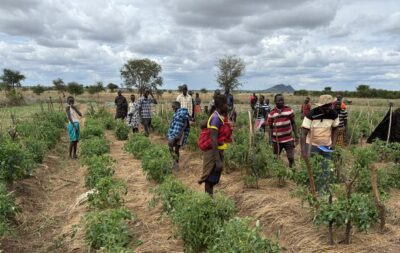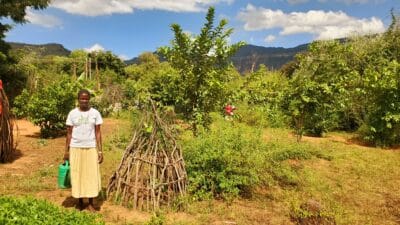News
29 March 2021
Women’s livestock groups choose to challenge the status quo
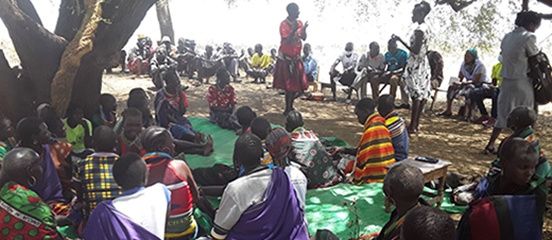
Community dialogues held in the Moroto District of Uganda’s Karamoja region gave women taking part in Farm Africa’s Livestock for Livelihoods goat rearing project the opportunity to challenge gender bias and inequality.
Two Women’s Livestock Groups receiving support from Farm Africa, each comprising of 30 members, participated in the dialogues, which were organised by the local government as part of a week-long celebration marking International Women’s Day on 8 March 2021.
Farm Africa and other development partners in the district joined the local government in the launch of the event as well as the community dialogues, which involved women in urban and rural areas.
The government recognised the work being done by Farm Africa and other development partners in continuing to empower women despite the challenges of the COVID-19 pandemic.
The events marked the third year running that Farm Africa collaborated with the Moroto District government to celebrate International Women’s Day.
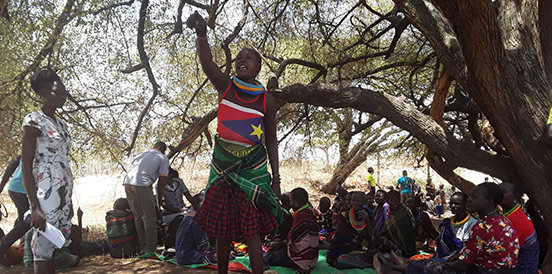
A member of the WLG re-emphasises that both men and women have a role to play in educating a girl child and providing for household needs.
The dialogue meetings involved the participation of both men and women, and were moderated by the District Community Development Officer. The topic discussed was “the role of women and men during the COVID-19 pandemic’’.
The women participated actively in the discussions, challenging men on gender issues in their community and pointing out that men do not support them when it comes to teaching children, especially girls.
While some other women present at the meeting remained quiet, members of the Women’s Livestock Groups working with Farm Africa were actively involved in discussions and challenged men from time to time.
Farm Africa has provided a package of training to women participating in the Livestock for Livelihoods project focusing on women’s empowerment such as encouraging their spouses to involve them in making key decisions affecting the household.
The Livestock for Livelihoods project is funded with UK aid from the UK government.
